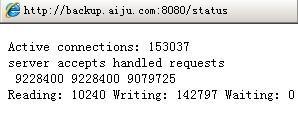n^x 中数字的递归和,其中 n 和 x 在 C++ 中非常大
我们给出了正整数变量作为“num”和“x”。任务是递归计算 num ^ x 然后将结果数字的数字相加,直到没有达到个位数,并且结果个位数将作为输出。
让我们看看这个的各种输入输出场景 -
输入 - int num = 2345,int x = 3
输出 - n^x 中数字的递归和,其中 n 和 x 非常大:8
说明 - 我们给定正整数值作为 num 和 x,值为 2345,幂为 3。首先,计算 2345 ^ 3,即 12,895,213,625。现在,我们将这些数字相加,即 1 + 2 + 8 + 9 + 5 + 2 + 1 + 3 + 6 + 2 + 5 即 44。现在我们将添加 4 + 4 即 8。由于我们已经实现了个位数,因此,输出为 8。
输入 - int num = 3,int x = 3
输出 - n^x 中数字的递归总和,其中 n 和 x 非常大: 9
解释 - 我们给定正整数值作为 num 和 x,值为 3,幂为 3。首先,计算 3 ^ 3 即 9。由于我们已经实现了个位数,因此输出为 9,不需要进一步计算。
下面程序中使用的方法如下
输入一个整数变量作为 num 和 x 并将数据传递给函数Recursive_Digit(num, x)进行进一步处理。
函数内部 Recursive_Digit(num, x)
将变量“total”声明为 long 并将其设置为调用函数total_digits(num),该函数将返回作为参数传递的数字的数字总和。
将变量声明为 long 类型的 temp 并将其设置为 power % 6
检查 IF total = 3 OR total = 6 AND power > 1 然后返回 9。
ELSE IF,power = 1 然后返回总数。
否则,如果,power = 0,则返回 1。
ELSE IF, temp - 0 然后返回调用 total_digits((long)pow(total, 6))
否则,返回 total_digits((long) pow(total, temp))。
函数内部长 total_digits(long num)
检查 IF num = 0 然后返回 0。检查 IF, num % 9 = 0 然后返回 9。
否则,返回 num % 9
示例
#include <bits/stdc++.h>输出结果using namespace std;
long total_digits(long num){
if(num == 0){
return 0;
}
if(num % 9 == 0){
return 9;
}
else{
return num % 9;
}
}
long Recursive_Digit(long num, long power){
long total = total_digits(num);
long temp = power % 6;
if((total == 3 || total == 6) & power > 1){
return 9;
}
else if (power == 1){
return total;
}
else if (power == 0){
return 1;
}
else if (temp == 0){
return total_digits((long)pow(total, 6));
}
else{
return total_digits((long)pow(total, temp));
}
}
int main(){
int num = 2345;
int x = 98754;
cout<<"Recursive sum of digit in n^x, where n and x are very large are: "<<Recursive_Digit(num, x);
return 0;
}
如果我们运行上面的代码,它将生成以下输出
Recursive sum of digit in n^x, where n and x are very large are: 1
以上是 n^x 中数字的递归和,其中 n 和 x 在 C++ 中非常大 的全部内容, 来源链接: utcz.com/z/322610.html





